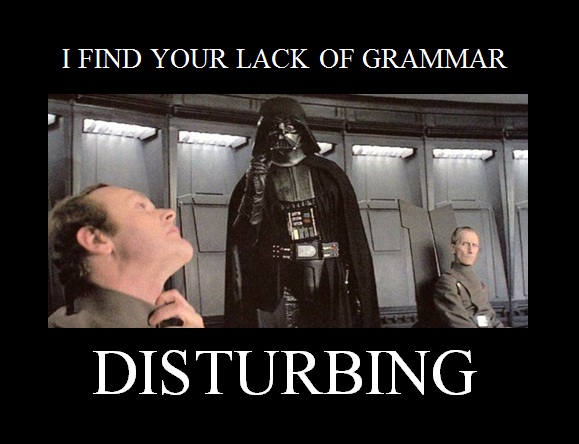My confession is that I’m a “touch” of a grammar snob. I seldom purchase anything from a website which has a single glaring spelling or grammar error. As a consumer, I believe that if your website hasn’t been carefully audited to make sure your content is free from error, what other aspects of your business have you not thoroughly checked? Statements from both major search engines recently made regarding their thoughts on the matter, with Bing stating outright that poor spelling and grammar will negatively affect your rankings.
The implications for digital marketing may seem subtle, however small issues like “i’s before “e’s” can cost you both revenue from new customers as well as increase your digital marketing spend. Previously it would be personal preference as per my example above, but Bing’s statement is convincing evidence that incorrect language usage will damage your site’s trust score in their index.
Senior Product Manager Duane Forrester stated in his blog article – “just as you’re judging others’ writing, so the engines judge yours. If you struggle to get past typos, why would an engine show a page of content with errors higher in the rankings when other pages of error free content exist to serve the searcher? Like it or not, we’re judged by the quality of the results we show."
Google has made changes to its algorithm to weed out “spammy” and low quality content in the iterations of Panda, however the true extent of their penalties regarding spelling and grammar are yet to be formally announced.

So we all make sure spelling errors don’t occur on our own sites, by thoroughly checking our content and we’re fine? Right? Sure, but there are a few more touch points to make sure you’re completely optimizing your digital brand.
Don’t make use of automated translation plugins for your site
These plugins are the greatest creators of “engrish” faux pas in the digital spheres and often duplications of tools already in existence. Many browsers will automatically offer the translate functionality natively. Do not create the impression you’ve translated the pages when potentially the automated functionality could damage your potential new customers perception of your brand. Either pay for professional translations or leave it to the choice of the user.
Don’t let SEO companies convince you to chase traffic for misspellings of keywords
As enticing as the offer of optimizing to get traffic that your competition is “missing out on” is, the recent announcements by search engines to reduce trust and the potential brand damage to human users means that you should decline such offers.
Check your neighborhoods that you’re affiliated with
When offering high quality content, such as infographics or PR pieces you’ve produced, to other sites, make sure they match the quality of your own brand. Think twice about having your “Advice for Tax Returns” graphic placed next to “Y childrens need 2 learn betr”. Your brand deserves better and you’ll get more business by partnering with reputable sites.
With search engines making definite statements against poor language use, I feel completely vindicated in every criticism I have ever made as a digital grammar snob. Succinctly put, make sure you’re sure of your spelling and grammar when publishing online.
Need Assistance with Digital Strategy?
Rogerwilco’s team of strategists, business analysts and data scientists is here to help.





